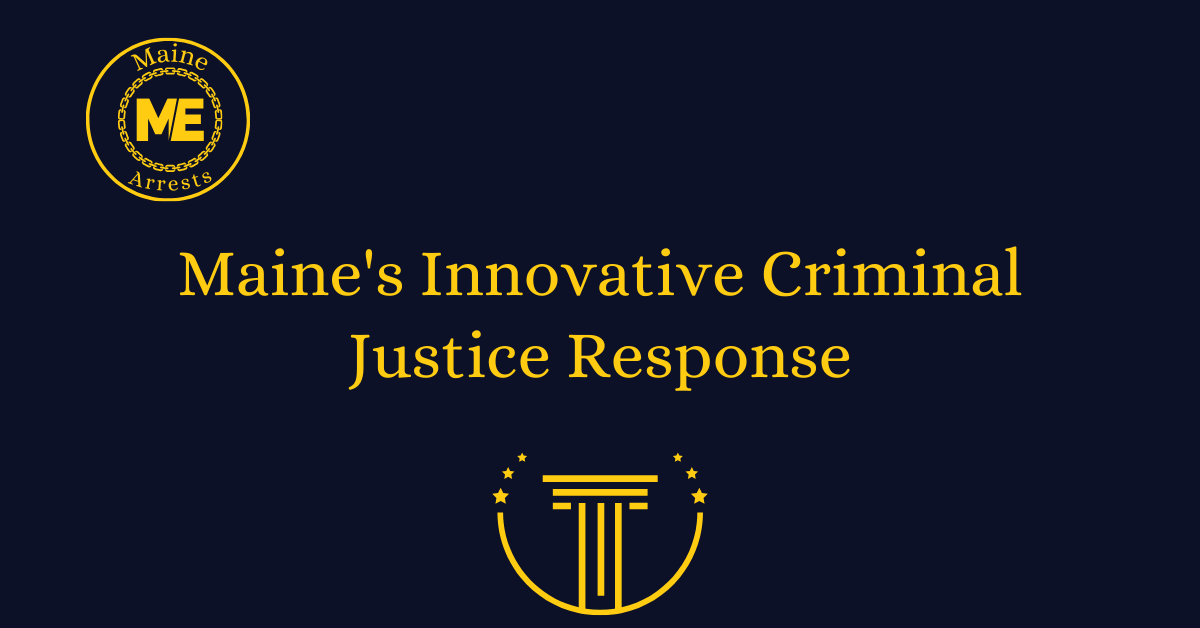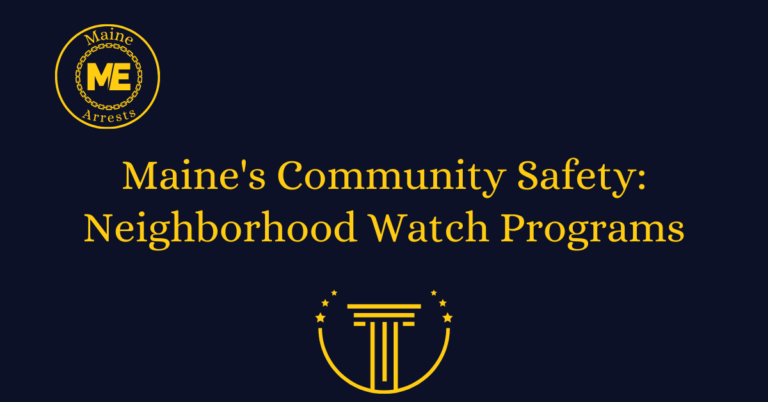Maine’s Innovative Criminal Justice Response
In recent years, Maine has garnered attention for its innovative approaches to criminal justice. With a focus on rehabilitation, community involvement, and diversion programs, the state has implemented various strategies aimed at reducing recidivism rates and fostering a more equitable and effective justice system. This article explores some of Maine’s notable initiatives and their impact on the criminal justice landscape.
Restorative Justice Programs
One of the cornerstones of Maine’s approach to criminal justice is its emphasis on restorative justice programs. These programs prioritize repairing the harm caused by criminal behaviour and promoting healing for all parties involved. Through processes such as victim-offender mediation, community conferencing, and restitution agreements, restorative justice offers offenders the opportunity to take accountability for their actions and make amends to those affected. By focusing on dialogue, understanding, and reconciliation, these programs aim to address the underlying causes of crime and prevent future offences.
Treatment Courts
Maine has also invested in the expansion of treatment courts as an alternative to traditional sentencing for individuals struggling with substance abuse and mental health issues. These specialized courts, including drug courts and mental health courts, provide tailored interventions and support services to address the root causes of criminal behaviour. By offering treatment, counselling, and monitoring, treatment courts aim to break the cycle of addiction and mental illness that often contributes to criminal activity. Participants are held accountable for their progress and are incentivized to comply with treatment plans through a combination of rewards and sanctions.
Community-Based Corrections
In recognition of the importance of community support in the reintegration process, Maine has prioritized the development of community-based corrections programs. These initiatives seek to transition individuals from incarceration back into their communities in a safe and supported manner. Through halfway houses, transitional housing, job training, and case management services, individuals are provided with the resources they need to successfully reenter society. By fostering connections with family, employment, and social services, community-based corrections programs aim to reduce recidivism and promote long-term rehabilitation.
Pretrial Diversion and Alternative Sentencing
Maine has also implemented pretrial diversion and alternative sentencing programs to divert individuals away from the traditional criminal justice system when appropriate. These programs offer eligible offenders the opportunity to participate in rehabilitative interventions, community service, or education programs instead of facing formal charges or incarceration. By addressing the underlying factors that contribute to criminal behaviour at an early stage, pretrial diversion and alternative sentencing initiatives aim to prevent further involvement in the justice system and promote positive outcomes for individuals and communities alike.
Collaborative Partnerships
Central to Maine’s innovative criminal justice response is the emphasis on collaborative partnerships between various stakeholders, including law enforcement, prosecutors, defence attorneys, community organizations, and service providers. By working together to identify needs, share resources, and implement evidence-based practices, these partnerships facilitate a more holistic and coordinated approach to addressing crime and promoting public safety. Through regular communication, data sharing, and joint problem-solving efforts, stakeholders can leverage their collective expertise and resources to achieve better outcomes for individuals involved in the justice system.
FAQs
What is Maine’s Innovative Criminal Justice Response?
Maine’s Innovative Criminal Justice Response refers to a unique approach taken by the state of Maine to address criminal justice issues. It involves implementing innovative strategies and programs aimed at reducing crime rates, improving rehabilitation efforts, and promoting a fair and effective justice system.
What are some examples of Maine’s Innovative Criminal Justice Response programs?
Maine has implemented various programs as part of its innovative criminal justice response. Some examples include alternative sentencing programs, such as drug courts and mental health courts, which focus on addressing the underlying causes of criminal behavior rather than just punishment. Additionally, Maine has established community-based reentry programs to support individuals transitioning from incarceration back into society.
How does Maine’s Innovative Criminal Justice Response aim to reduce recidivism?
Maine’s Innovative Criminal Justice Response recognizes that reducing recidivism is crucial for creating safer communities. The state focuses on providing comprehensive rehabilitation and support services to individuals involved in the criminal justice system. This includes access to education, job training, substance abuse treatment, and mental health services, which are essential for successful reintegration into society and reducing the likelihood of reoffending.
What are the benefits of Maine’s Innovative Criminal Justice Response?
Maine’s Innovative Criminal Justice Response has numerous benefits. By adopting a more holistic approach to criminal justice, the state aims to reduce crime rates, enhance public safety, and save taxpayer money by reducing the reliance on incarceration. It also prioritizes the well-being and rehabilitation of individuals involved in the criminal justice system, promoting a fair and compassionate approach to justice.
How does Maine ensure the effectiveness of its Innovative Criminal Justice Response?
Maine regularly evaluates the effectiveness of its innovative criminal justice response programs through data collection and analysis. By monitoring key indicators such as recidivism rates, program completion rates, and participant outcomes, the state can make informed decisions and continuously improve its approach. Collaboration with community stakeholders, research institutions, and justice system professionals also plays a crucial role in ensuring the effectiveness of these programs.
How can individuals get involved or support Maine’s Innovative Criminal Justice Response?
There are various ways individuals can get involved or support Maine’s Innovative Criminal Justice Response. This can include volunteering or mentoring individuals involved in the criminal justice system, advocating for policy changes that promote effective rehabilitation and reintegration, and supporting organizations that provide services and support to those impacted by the criminal justice system. Additionally, staying informed about the latest developments and initiatives in this field can help raise awareness and promote positive change.







